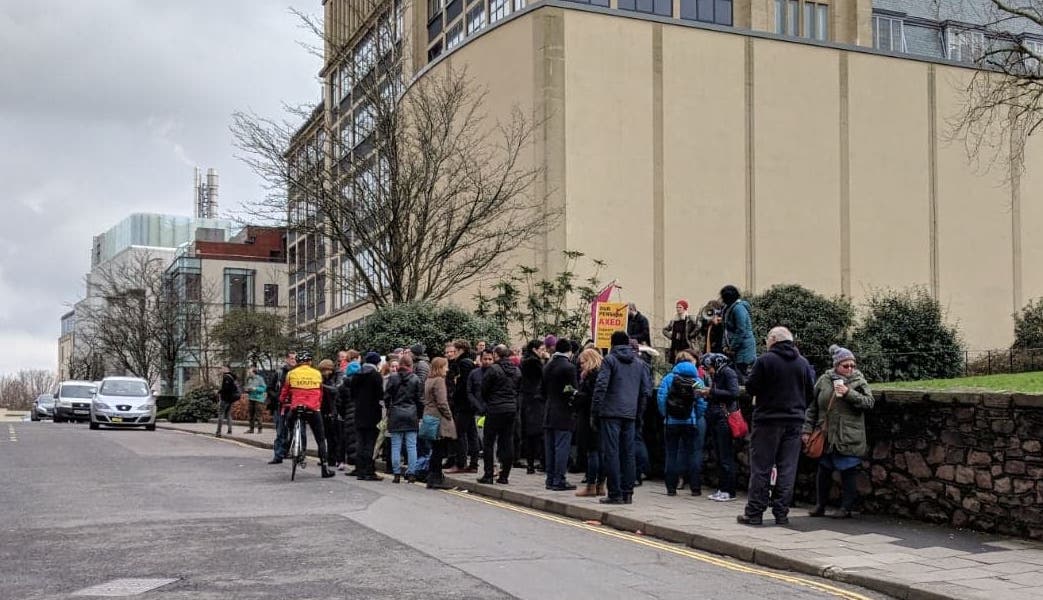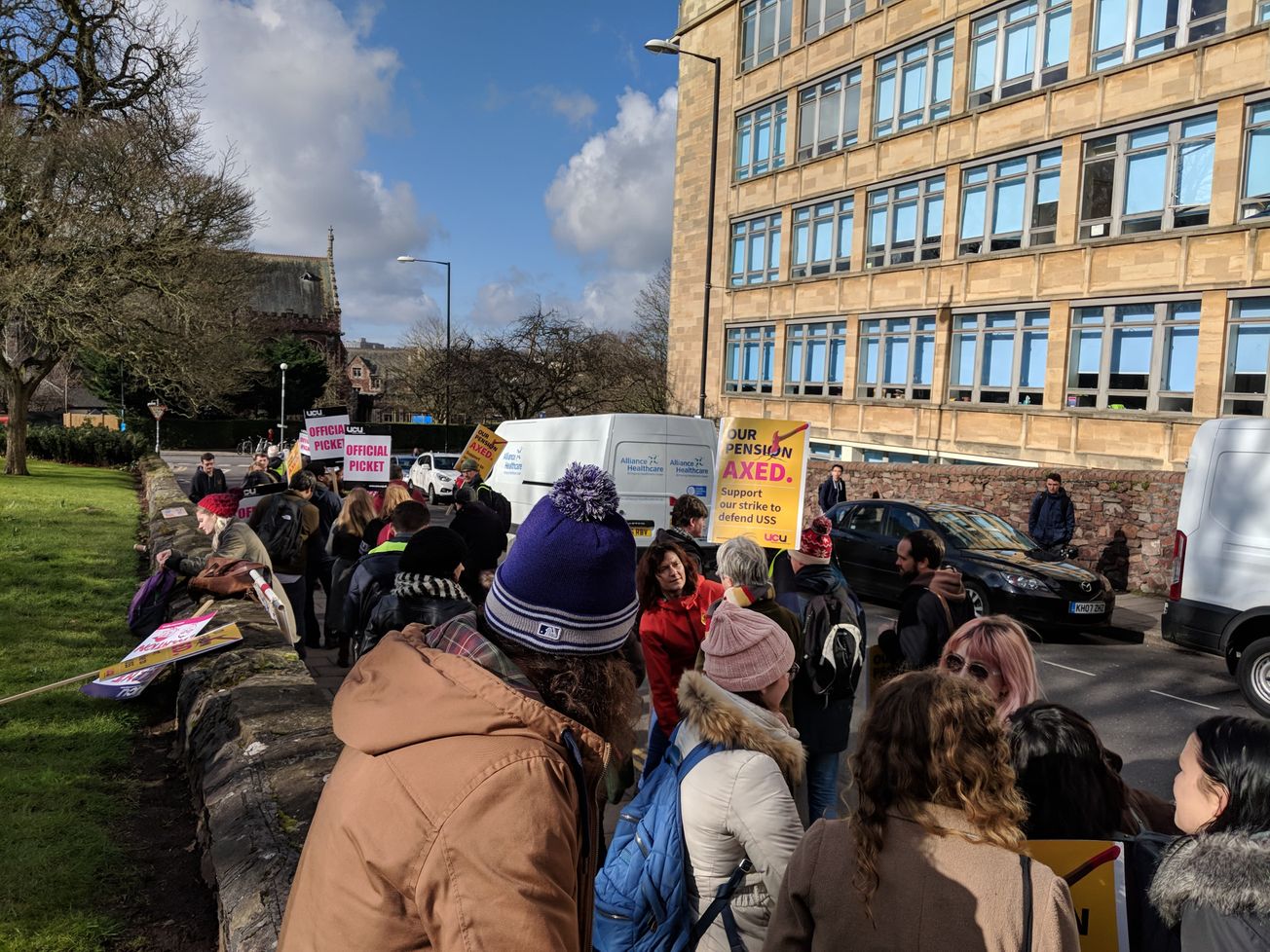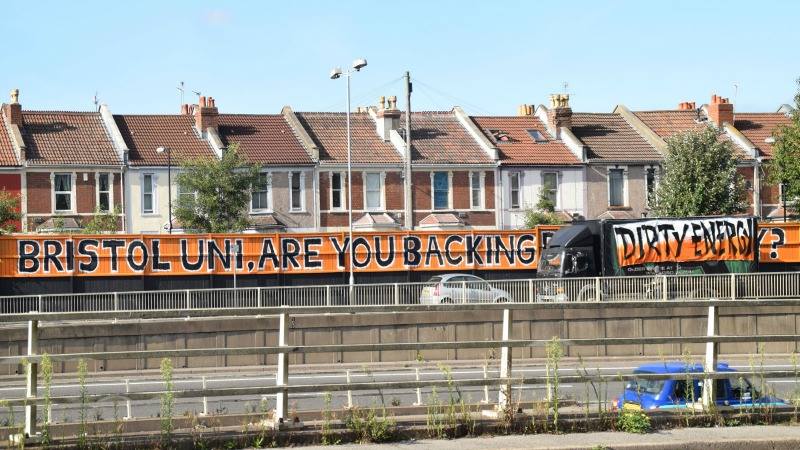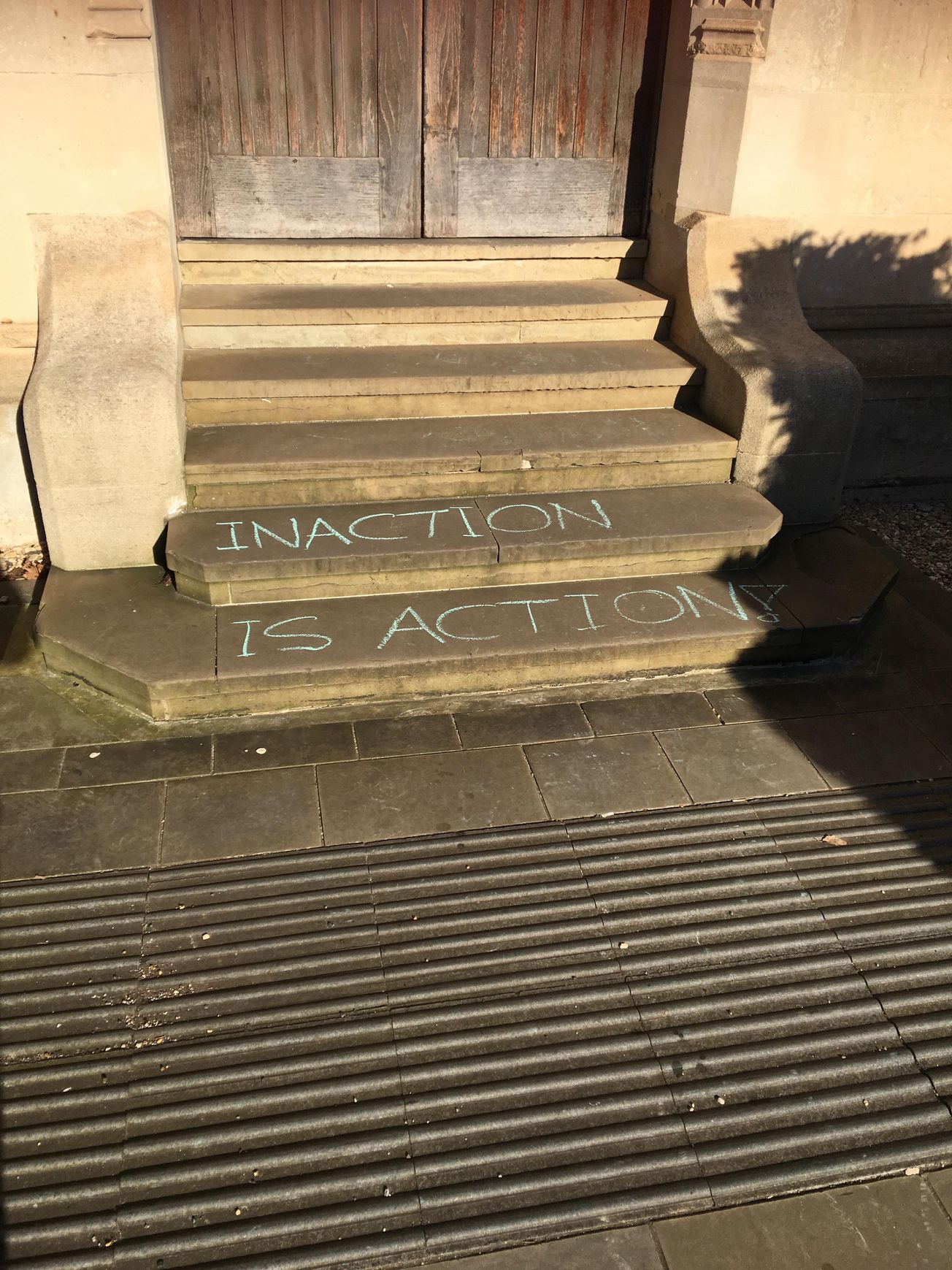Last week, Ed Southgate interviewed the SU Undergraduate Education Officer, Mason Ammar, about the SU, and its stance on the ongoing UCU strikes.
Firstly, quite a few students often feel disconnected from the SU, so could you start by explaining what are the main requirements of an SU, and what is your role at UG Education Officer?
Mason Ammar (M): The Students' Union is there to represent students' views and interests, whether that is lobbying the University on key issues or providing spaces or facilities for student groups. There are loads of areas like development, policy and campaigning so it is quite widespread. Our main thing is that everything we decide to do has to be in the interest of the students. My role is to look at the academic and wellbeing aspect of university.
We went on to discuss policy that Mason and the SU have been working on, which you can find here. Mason said that the current SU are not continuing to boycott the NSS because the government put out subsequent changes to the survey that would substitute for any lost metrics from a boycott.
In your manifesto, you said every student deserves a 'supportive, inclusive and progressive education'. Can you explain a bit more about what you meant by that?
M: Yeah, so it was inspired by my time at university and by the voices that aren't usually heard around campus. The 'supportive' aspect was based around the support you get around the schools, mental health etc. The 'progressive' was based around careers. The 'inclusive' refers to our campaigns such as 'Why is my curriculum white?'.
Moving onto the UCU strike action, what is the official SU policy?
M: When we heard about the strikes, I was placed on a committee in the University that would track what would be affected by the strikes, and they have been trying to mitigate the impact on students. We consulted with students on our stance, and we took a long time because I thought it was very important that we consulted with students. We plugged that through our UG Education Network and PG Network, that we encouraged everyone to join at the beginning of the year. I know there have been some misconceptions about the numbers of those networks -
#NewProfilePic pic.twitter.com/FnGJsaMMUi
— Mason (@masonammar) February 22, 2018
- Well the Education Network has 311 members in?
M: Yeah, so the core body of the Education network is course reps, faculty reps, academic societies and anyone who is interested in educational issues. So, even though 311 might not seem representative, the vast majority are course reps. It is a lot more representative than it seems because they are representing more students, so we get a better image of what we think would be best across the board.
Would it not have been easier to have made the document more widespread? You say these members have "educational interests" but surely every student here has an 'educational interest' because they are students here?
M: We didn't limit to say it would just be course reps or faculty reps, it is open for everyone to join.
What kind of feedback were you getting from it?
M: A lot of it was what the University had already expected. There was a lot around certain assessments falling on strike days and what would happen to those.
We also asked whether they thought we should lobby the University to reinvest the money into the student interest. Now, in the past the UCU has always asked the University to put that money into student hardship funds. When we asked the students where they think the money should be put into, the most popular was for it to go into student mental health services.
Mason made the point that it is difficult to compare the change.org petition with the SU's Google Doc survey, because the former often has unverified signatures. With the latter, they could confirm that all responses came from students at the University of Bristol. Campaigning for refunding tuition fees also goes against active policy, Mason explained, to fight the marketization of Higher Education. As a democratic body, it is not allowed for the SU to go against active policy.

The ongoing UCU strikes are planned to last fourteen days. (Epigram / Evy Tang)
You've said that you recognise that students have 'understandable concerns' about the impact on their studies, yet isn't the SU stance to not attend lectures which haven't even been cancelled? So, I was just wondering how a Students Union which supposedly stands up for student interests, which also recognises the 'understandable concerns' about the impact of strikes on our studies, can advocate further disruption to them. How does this equate to representing the students?
M: The whole point of the strike and non-attendance is to cause disruption. That is the core purpose of it; we are not trying to limit this disruption. Our argument for that is that the less students at the University, the more disruption it has caused to the University and the more likely it is for the University to act.
By supporting our lecturers we are representing our students' interests. By having well-supported and confident lecturers is a benefit to students.
But that's not representing the interests of those students is it? Because those students want to get their degree and the education that they have put their money towards?
M: By supporting our lecturers we are representing our students interests. By having well-supported and confident lecturers is a benefit to students. Do you want lecturers who are stressed and do not have the confidence to stay in their job to be teaching you? And that's what a lot of students agree with me on.
But presumably the lectures that haven't been cancelled are because those lectures are not part of the UCU, so is that not a separate matter?
M: The idea as a whole was in general: 'do not cross the picket line'. There is a distinction to be made over whether each lecturer is on the specific pension scheme, but most probably are. If there are lecturers who have chosen to cross the picket line and not strike, the idea of not attending those lectures is to cause disruption if that lecturer has chosen not to cause disruption. We've just explained what not crossing the picket line means -
- But you have encouraged students not to cross it?
Yeah we have encouraged them not to but at the end of the day that is up to individual students. A lot of the time those students are attending those lectures.
A short snippet from the #ucustrike Rally. Thank you @Bristol_UCU for giving me the opportunity to speak. We will always stand in solidarity with our sister unions and will continue the fight until our lecturers receive the respect they deserve. ✊🏼 pic.twitter.com/kQKNBFjG8Q
— Mason (@masonammar) 22 February 2018
So do you think it is possible to support the strike and to attend your lectures?
M: This is where it gets tricky, because we say do not cross the picket line and technically you would be crossing the picket line. That is not showing full solidarity. It is quite subjective; you can be doing other stuff that would support it and maybe you attend your lectures still because they're on. The thing is more about showing solidarity with you lectures.
But if they do cross the picket line to go to those lectures that they paid for, and where their lecturer is not striking, does that immediately mean they are not showing solidarity with striking lecturers?
M: Personally I would say no, that is not showing full solidarity. But it is not a 'yes/no' thing; there is multiple ways of showing solidarity and one of the ways in doing that is not attending lectures. You can choose to do that, you can choose to attend a rally, you can chose to just email Hugh Brady. That is your own personal choice.
There is a distinction to be made over whether each lecturer is on the specific pension scheme, but most probably are
And you would encourage students to make that personal choice?
M: Yeah, for sure. We are not making that choice for them. That is a choice that they can make themselves.
So when you say 'we encourage you not to attend your lectures', at the same time you do still encourage them to do what they want to do?
M: No, because that would conflict.
So does that mean you're not encouraging them to do what they want to do then? If your main line of argument is to encourage them not to attend lectures, surely that is not encouraging them to have an individual choice in the matter?
M: We are encouraging them the ways in which you can show solidarity; there are multiple ways to do that. I don't blame the students who are still going to their lectures. If you would have asked me would I go, personally I wouldn't. The reason I choose not to is because I do Economics which has a lot of contact hours a week so it wouldn't take me so long to catch up. If you are on a course where it is a very limited amount, then I can imagine them choosing not to show solidarity in that way. But there are other things you can do; attending rallies, emailing the Vice-Chancellor, or choosing not to cross the picket line.
So you don't have to do all of those things together? You can pick and choose?
M: No, we're not saying you have to do all of that. The difference is, in the past we have been faced with one, two or three days of striking but this is fourteen days. If this was a two-day strike I think the majority of students wouldn't go to their classes; given it is fourteen days, your choice will differ in what you feel like you can do yourself. It is the same as giving to charity; you can choose to give £2 a month or you can choose to give £100. You are not against that charity if you are not giving £100 a month - you do what you can and within your own means.
None of the lecturers will think badly of students who are crossing the picket line. We are just saying that to have max impact and to give the strongest message, this is what we could be dong.
Open air @Bristol_UCU #choosebristol #Bristol #UCUstrike @wills_memorial #StrikeforUSS pic.twitter.com/OR6LwdmavR
— Bristol UCU (@Bristol_UCU) March 7, 2018
Some students obviously have been crossing the picket line to go into the library and do their dissertation work. When they have done this they were faced by some hostile slurs; what would you say to those students who are shouting 'scab' at others?
M: It is very upsetting. There has been lectures that have been disrupted too, and some lecturers have felt intimidated too who have got in contact with me. I am really sorry if this is happening to you; that is not the motivation of the strike. We do not condone any behaviour that will antagonise any students or staff. That is not something we advocate, and it is not the reason for the strike; we are trying to support our lecturers, not to abuse others. I think it is a case of the way you approach things; there is a way to approach people calmly and raising awareness of what is going on.
Finally, if students are wanting to go into the library to get books out, they're being heckled and being called scabs, would you encourage them to defy that intimidation and continue what they're doing in crossing the line?
M: No, I wouldn't be like 'to get back at them keep crossing the picket line'. I'd say:'if you feel antagonised or that you've been treated badly, report those students.'
Featured Image: Epigram / Evy Tang









